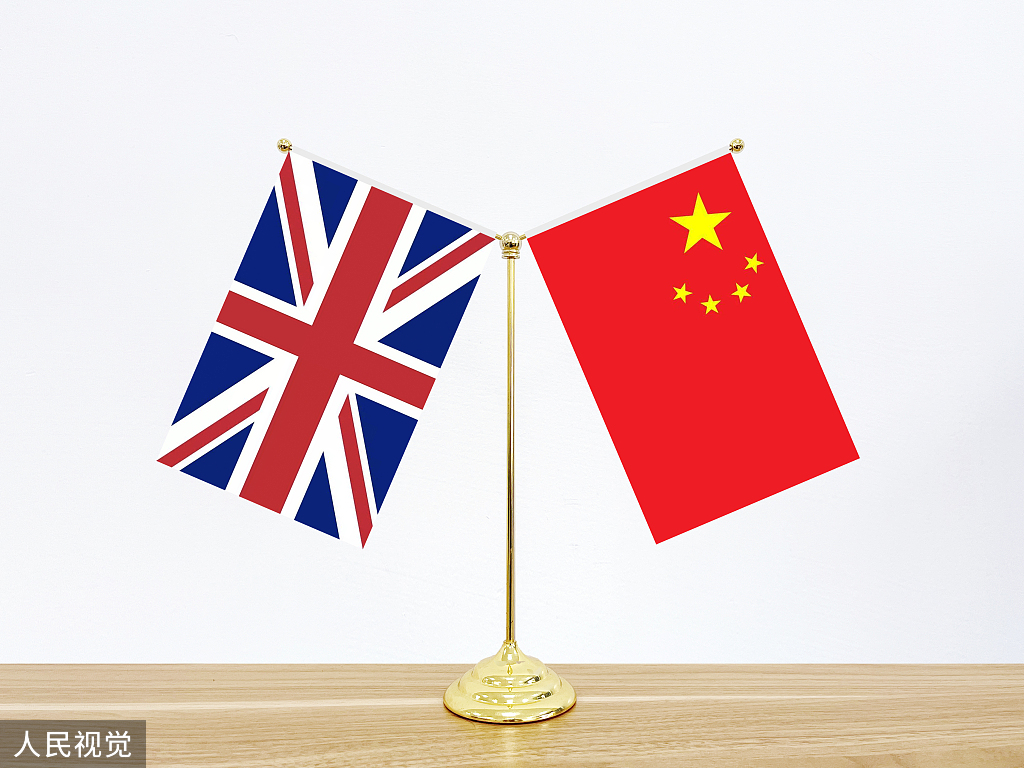Hope London will return to sane policy towards Beijing
By Carlos Martinez | CHINA DAILY | Updated: 2023-05-11 06:57

Chinese Vice-President Han Zheng's visit to London to attend the coronation ceremony of King Charles III is a reminder of China's willingness to develop a productive and mutually-beneficial relationship with the United Kingdom.
The recent deterioration in relations between the two countries has not been instigated or fomented by Beijing. China has always sought to foster a bilateral relationship of friendship, exchange, mutual learning, trade and investment that brings material and cultural benefits to both sides.
The most emblematic moment of the "golden era" of UK-China relations was Chinese President Xi Jinping's five-day visit to the UK in 2015. At the joint news conference addressed by both President Xi and then British prime minister David Cameron, it was announced that the two countries will build a global comprehensive strategic partnership for the 21st century.
There was even talk of the UK aligning its "Northern Powerhouse" project with the Belt and Road Initiative. Eight years later, Belt and Road projects have helped boost infrastructure development in many parts of the world, while almost no progress has been made on the Northern Powerhouse initiative, which is a real shame.
China's strategic approach to its ties with Britain and its wish to establish long-term win-win relations have not changed. The major change in the relationship is that the British establishment seems to have become anti-China, in step with the United States' geopolitical game to maintain its global hegemony.
This reflects two political shifts. First, the US, in recent years, has adopted an increasingly confrontational stance toward China: imposing sanctions and extra tariffs, forming the trilateral security alliance AUKUS, waging a trade war and initiating a tech war against China, undermining the one-China principle.
Second, in the aftermath of Brexit, the UK has been slowly but steadily losing its foreign policy independence, choosing to act on the instructions of the US in the hope it will prepare the ground for a comprehensive US-UK trade deal that makes up for what Britain has lost by leaving the European Common Market. The result is that the UK now follows the US' lead when it comes to relations with China.
In 2015, Britain faced significant pressure from the US to not join the China-initiated Asian Infrastructure Investment Bank, but it was able to withstand that pressure in defense of its own economic interests. It's unlikely that Britain would act in a similarly independent way today.
However, British Foreign Secretary James Cleverly's recent speech on UK-China relations seems to indicate some willingness on the part of the British government to return to a sane policy. Cleverly's speech — and British Prime Minister Rishi Sunak's refusal to label China as a "strategic threat" — represent a growing understanding that Britain needs investment from, and trade with, China, and that "decoupling" of economies leads to a dead end. The British people will benefit greatly if this understanding can be turned into a policy of cooperation and mutually-beneficial relations.
And Han's visit to the UK will hopefully provide an opportunity for Britain's political leadership to take some concrete steps in this direction.
The author is co-editor of London-based Friends of Socialist China platform. The views don't necessarily reflect those of China Daily.
If you have a specific expertise, or would like to share your thought about our stories, then send us your writings at opinion@chinadaily.com.cn, and comment@chinadaily.com.cn.
























